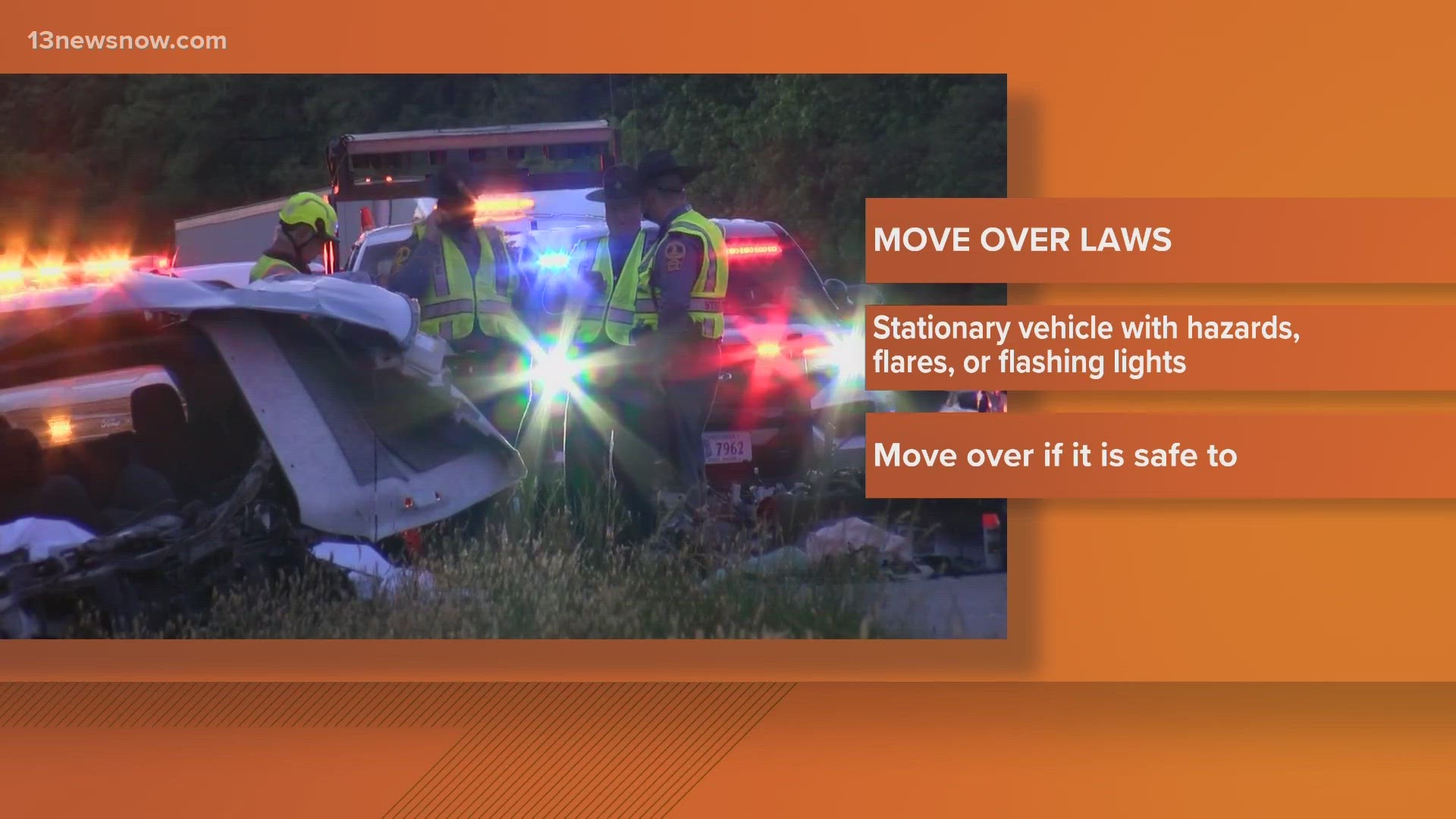NORFOLK, Va. — We're almost to the halfway mark of the year, and that means new laws affecting the lives of Virginians are about to take effect.
Earlier this year, the Virginia General Assembly passed several laws that go into effect on July 1, 2023.
Many of these laws address different types of crimes in Virginia, but several change state systems, like reporting bullying in schools or how absentee ballots are cast. Others touch on regulations for weapons and controlled substances.
Here's an overview of some of the most notable new laws.
Age verification for online pornography
Senate Bill 1515 will require online pornography websites to identify people's ages to make sure they are 18 years or older.
Under the law, websites will have to use a "commercially available database" to verify the age and identity of a person. Those who don't could face a lawsuit covering damages resulting from a minor's access, as well as attorney fees and costs.
The law deems "any description or representation" of nudity, sexual conduct, sexual excitement or sadomasochistic abuse as harmful material for people under the age of 18.
New rules for hemp products
House Bill 2294, which also passed as Senate Bill 903, will limit the amount of THC allowed in a retail-sold hemp product or industrial hemp extract to 0.3% and two milligrams per package.
More than two milligrams of THC is allowed if the product or extract contains an amount of CBD at least 25 times greater than the amount of THC.
Hemp processors won't be allowed to sell industrial hemp or a substance containing an industrial hemp extract if they know or have a reason to think that someone will use it in a way that violates THC limits.
Virginia Gov. Glenn Youngkin advocated for the law as a way to crack down on the sale of Delta-8, which the Food & Drug Administration has said could pose serious health risks.
False 911 reports classified as misdemeanor, felony if someone gets seriously hurt or killed
Under House Bill 1572, which was also signed as Senate Bill 1291, it will be a class 1 misdemeanor for anyone to knowingly report false information to emergency personnel that results in an emergency response.
It becomes a class 6 felony if the false report results in an emergency response and causes someone to get seriously hurt, and a class 5 felony if anyone gets killed.
The law's enactment comes after a series of false threats called into schools, including ones in Hampton Roads. In 2022, there were 150 threats of various types received across just four of Hampton Roads' seven school districts.
'Move over' law expanded to cover stopped drivers
House Bill 1932, also passed as Senate Bill 982, will require drivers to make a lane change or slow down when passing stopped vehicles with activated hazard warning signal flashers, displayed caution signs or properly lit flares or torches.
This requirement applies on certain highways when safe and reasonable to do so. A violation of the requirement will be considered a traffic infraction.
Blue headlights no more
Aftermarket modifications that make headlights appear as a blue light will now be banned on different types of vehicles, including cars, motorcycles, bicycles, mopeds and scooters.
The change was enacted with Senate Bill 855.
Fentanyl mixtures deemed 'weapon of terrorism'
Under House Bill 1682, which also passed as Senate Bill 1188, any mixture or substance containing a detectable amount of fentanyl, will be considered a weapon of terrorism.
"Knowingly and intentionally" manufacturing or distributing these substances will be considered a class 4 felony.
Changes to how school systems address bullying
House Bill 1592 will require public school principals or their designees to notify parents of any student involved in an alleged bullying incident within 24 hours of finding out.
Before, the principal was only required to notify parents of any investigation into alleged bullying within five school days.
Witness requirement for absentee ballots removed
House Bill 1948 has replaced the witness requirement for absentee ballots with the requirement that people provide the last four digits of their social security number and birth year.
Switchblades allowed in public
House Bill 2298 removes switchblade knives and adds stiletto knives to the list of concealed weapons that are prohibited to carry in public.
Tax credit for firearm safety devices
House Bill 2387 creates a firearm safety device tax credit, a nonrefundable income tax credit for taxable years 2023 through 2027 for any who buys one or more firearm safety devices.
Anyone who claims this credit will be allowed a credit in the amount of up to $300 for the cost incurred in such a purchase. There's a cap of $5 million that the state will give out for this tax credit per year.

